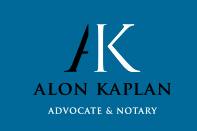
To effectively manage trusts in Israel, understand they lack dedicated statutes, relying on foreign systems for recognition. Guarantee settlor residency aligns with tax requirements, as Israeli Resident Trusts face unique obligations. Trustees must act in beneficiaries’ best interests while maintaining accurate records. Familiarize yourself with diverse trust types and adhere to new reporting regulations to avoid penalties. With legislative changes on the horizon, staying informed will guarantee compliance and successful trust management. Discover more insights on maneuvering Israeli trust intricacies.
Key Takeaways
- Understand settlor and beneficiary residency to determine tax implications for Israeli trusts.
- Ensure trusts remain irrevocable to qualify for specific tax benefits and avoid Israeli control.
- Maintain detailed records and transparency to meet compliance and reporting obligations.
- Collaborate with licensed trust companies to manage trustee responsibilities effectively.
- Monitor legislative changes affecting trust reporting requirements and tax liabilities.
Understanding the Legal Recognition of Trusts in Israel

Although Israel doesn’t have a dedicated statutory trust law, trusts are recognized primarily through foreign legal systems.
You’ll find that trust structures in Israel rely heavily on legal nuances from international jurisdictions. The Israeli legal landscape acknowledges trusts but doesn’t treat them as separate legal entities, instead viewing them as relationships or contractual arrangements. The Development of Trusts in Israel has been influenced by historical, cultural, and legislative factors, creating a unique framework for modern-day trust practices.
This is where the “hekdesh” comes in—it’s a prominent method for creating private trusts, often through a unilateral declaration. Trust assets are commonly held via underlying companies due to the lack of legal personality in trusts.
Hekdesh offers a unique approach to private trusts in Israel, circumventing the lack of legal personality.
Additionally, Israeli courts apply private international law to recognize and operate trusts established under foreign jurisdictions, ensuring their functionality within the country. The extensive use of foreign trusts is partly due to Israel’s immigrant population, which brings diverse legal and cultural influences to trust practices.
Understanding these elements is essential for steering through Israel’s trust framework.
Navigating Settlement Requirements for Israeli Resident Trusts
When managing the settlement requirements for Israeli resident trusts, it’s important to understand the various factors that influence their classification and tax implications. You need to take into account settlor residency, which plays a significant role in determining the trust’s classification. If the settlor is an Israeli tax resident, the trust may be classified as an Israeli resident trust. Similarly, beneficiary residency affects the trust’s tax classification, especially if an Israeli resident is among the beneficiaries. The presence of Israeli beneficiaries can subject the trust to Israeli tax obligations. Additionally, make sure the trust remains irrevocable to qualify for specific tax benefits and avoid Israeli control or ownership. Understanding these elements will help you effectively navigate the settlement process for Israeli resident trusts. Israeli residents are taxed on a personal basis according to residency, while non-residents are taxed only on Israeli-sourced income. It is essential to consider the Law of Trust in Israel, which provides the legal framework governing trusts and ensures compliance with the requirements for establishing and managing them effectively.
Exploring Taxation Challenges and Opportunities for Trusts
Understanding the settlement requirements for Israeli resident trusts sets the stage for exploring the complex taxation landscape these entities navigate.
The tax implications for different trust structures in Israel hinge on residency status and income source. Israeli Resident Trusts, for instance, face Israeli tax on worldwide income if they’ve an Israeli settlor or beneficiary. Israeli Beneficiary Trusts are taxable on global income if beneficiaries are residents. Foreign Residents Trusts escape Israeli tax unless they earn Israeli-sourced income. Inheritance Trusts are taxed based on beneficiary residency. Trusts must also consider the impact of 2025 legislative changes on accumulated profits, especially for closely held companies. Alon Kaplan’s expertise in trust law can provide valuable insights for navigating these complex legal frameworks. Additionally, U.S. Social Security benefits can be excluded from adjusted gross income for Israeli residents, providing an avenue for potential tax relief.
Staying informed on tax strategies is essential to manage liabilities and optimize the trust’s financial position.
Responsibilities and Obligations of Beneficiaries and Trustees
To effectively manage a trust, both beneficiaries and trustees must understand their distinct roles and responsibilities, ensuring the trust is administered according to its terms. As a beneficiary, you don’t own the trust assets but enjoy the income or distributions as detailed in the trust deed. Your beneficiary rights include the power to enforce these terms against trustees if breached, ensuring your interests are safeguarded. Trustees, on the other hand, have core fiduciary duties. They must act in your best interests, manage assets according to trust instructions, and avoid conflicts of interest. Accurate record-keeping and transparency are mandatory, allowing you to request necessary information. Trusts create complex legal affiliations with obligations between trustees and beneficiaries, which is why multi-system activities across borders can be effectively managed through trusts. Both parties must comply with local reporting and regulatory obligations, maintaining the trust’s integrity. Collaborating with licensed trust companies in Israel and abroad can provide additional expertise and support in managing trust obligations effectively.
Differentiating Between Types of Trusts
Although trusts may seem complex, understanding the various types under Israeli law can greatly aid in efficient estate planning and tax management.
Trust characteristics and trust classification are essential when dealing with five main trust types.
An Israeli Resident Trust has at least one Israeli resident settlor or beneficiary, making it subject to Israeli tax law.
Foreign Resident Trusts, involving all non-Israeli parties, avoid Israeli taxes unless there’s an Israeli beneficiary. These trusts must maintain non-Israeli tax residency to ensure compliance with tax regulations.
Relative’s Trusts, often family-based, focus on estate planning. Trusts in Israel have historical roots tracing back to the Ottoman and British Mandate periods, and understanding these origins helps in appreciating their development and current practice.
Israeli Resident Beneficiary Trusts involve Israeli beneficiaries and face local taxation, while Foreign Resident Beneficiary Trusts cater to non-Israelis but may deal with Israeli-sourced income.
Knowing these distinctions helps in choosing the right trust structure for your needs.
Staying Compliant With Reporting and Compliance Obligations
As Israeli trust laws evolve, staying compliant with reporting and compliance obligations is essential for trustees. It’s vital to understand new requirements and adjust your practices accordingly. Here are key steps to guarantee compliance:
- Meet Reporting Deadlines: Trustees must file annual reports by specific dates, including details on controlling individuals. For new trusts, report within 90 days of creation; for pre-existing ones, by April 30, 2026.
- Confirm Documentation Readiness: Maintain extensive records detailing all individuals involved with the trust. Proper documentation supports transparency and compliance.
- Utilize Electronic Submission Systems: From 2025, use the online submission system for equity incentive plans to enhance transparency. The new legislation underscores the importance of using digital tools to streamline the reporting process.
- Report Beneficial Ownership: Disclose beneficial owners and controlling persons to meet anti-money laundering standards and prevent tax evasion.
Keeping up With Legal and Regulatory Changes in Trust Law

Understanding and adapting to the evolving landscape of Israeli trust law is essential for maintaining compliance and ensuring the smooth operation of trusts.
Legal updates, such as the proposed 2024 bill, may abolish the ten-year reporting exemption for foreign source income, affecting new immigrants, veteran returning residents, and their associated trusts. This change underscores the regulatory impacts on transparency, demanding trusts notify authorities of key individuals and their tax residencies if enacted. The increased scrutiny by the Tax Authority may lead to more documentation requests and deeper examination of taxpayer files.
Additionally, trusts benefiting individuals who become Israeli residents after June 1, 2025, will face new reporting obligations. Staying informed about legislative amendments and tax authority guidance is essential.
Frequently Asked Questions
How Can Trusts Collaborate With Foreign Entities?
To collaborate effectively with foreign entities, you should understand cross-border collaboration and comply with foreign trust regulations.
Register partnerships with Israeli authorities and confirm foreign trusts align with Israeli laws. Use joint ventures or agency arrangements for seamless integration.
Verify all income, tax, and reporting obligations are met, especially considering the residency status of trust participants.
Stay informed of evolving international tax standards to maintain compliance and transparency in your trust ventures.
What Are the Benefits of Creating a Trust for Asset Protection?
Picture a fortress guarding your treasures; creating a trust offers similar protection.
By forming a trust, you gain financial security as it separates your assets from personal liabilities, offering a shield against creditors’ claims.
Tax advantages further enhance this protection, with potential exemptions and deferrals.
Trusts also safeguard assets during lawsuits and marital disputes, ensuring your wealth remains intact.
Their flexible structure allows you to tailor asset protection to fit specific needs.
How Do Trusts Manage International Investments?
Trusts manage international investments by leveraging trust structures and investment strategies. They diversify portfolios across global markets, mitigating risks through careful asset selection.
Professionals with expertise in legal and tax frameworks navigate complex international regulations, ensuring compliance. Trusts also implement long-term strategies, focusing on growth and stability.
What Are the Key Considerations for Trust Succession Planning?
When planning trust succession, you must consider trustee responsibilities and beneficiary rights.
Make certain trustees understand their duty to manage assets prudently, align with the trust’s purpose, and comply with legal standards.
Beneficiaries should have clear rights to information and distributions as per the trust terms.
Succession planning involves structuring the trust to smoothly shift control and benefit, minimizing potential conflicts and legal complications, while maintaining the trust’s integrity and objectives.
How Can Digital Assets Be Included in Trusts?
When including digital assets in trusts, consider them the crown jewels of your estate.
Define these assets explicitly in trust documents, specifying custody and access provisions due to their unique nature.
Address legal uncertainties by incorporating clauses for private keys and wallet access.
Guarantee compliance with regulatory standards like AML, and prepare for tax implications under capital gains tax.
This approach safeguards your digital treasures and aligns with Israeli legal requirements.
Conclusion
In traversing the nuanced landscape of trusts in Israel, you should prioritize understanding legalities, meeting settlement mandates, and exploring tax tactics. Beneficiaries and trustees must fulfill their respective roles responsibly, differentiating between trust types to maximize benefits. Compliance with reporting requirements is vital, as is staying updated with evolving regulations. By mastering these essential elements, you’ll guarantee that your trust operations remain efficient, effective, and in alignment with Israeli legal standards, safeguarding both assets and interests.

